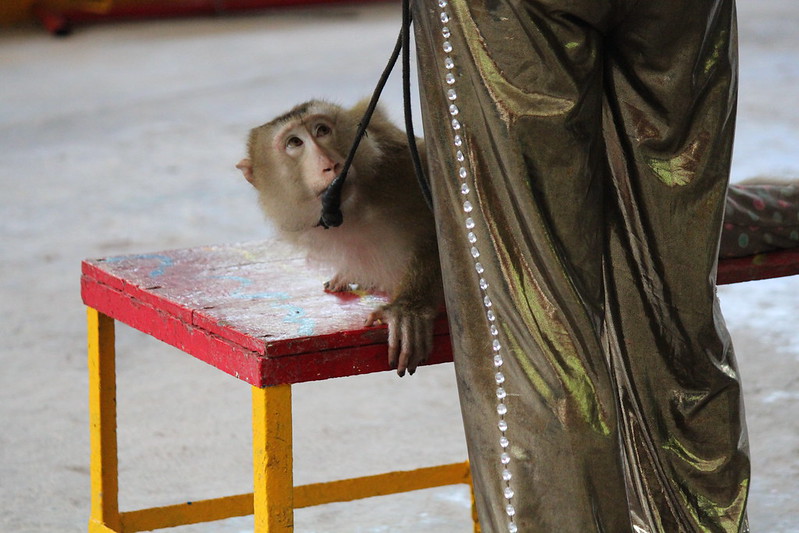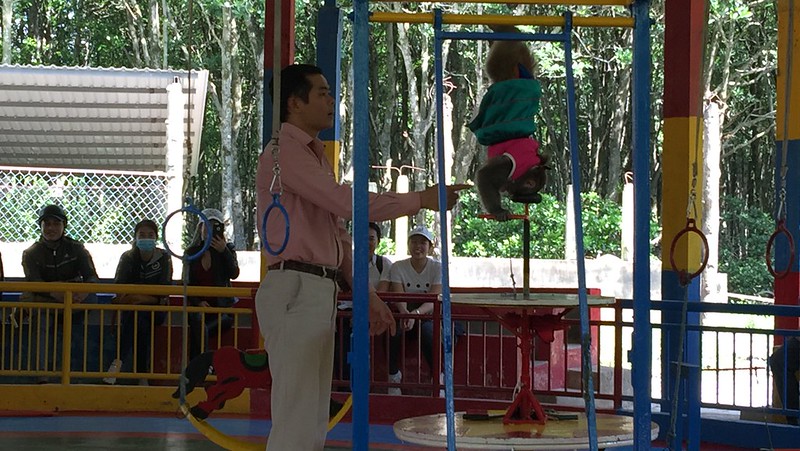Animals Asia’s open letter to UNESCO Director-General Irina Bokova
14 November 2017
Read Animals Asia’s full letter to UNESCO Director-General Irina Bokova urging an end to cruel monkey performances at facility in Vietnam.
The following letterwas issued by email on November 9 during UNESCO’s Biennial General Conference in Paris and was written after previous appeals to the UN agency to end animal performances at the Can Gio Mangrove Biosphere Reserve yielded little action.
UNESCO has the power to stop animal cruelty in Can Gio Mangrove Biosphere Reserve
Dear Director-General Bokova,
As a global animal welfare organisation, Animals Asia very much welcomed your comments on World Wildlife Day earlier this year.
You spoke passionately about the increasing number of crimes against wildlife over recent years, and the devastating impact on species that are both iconic and less well-known. While identifying the trafficking of wildlife as a major concern, you also acknowledged that UNESCO Biosphere Reserves and Natural World Heritage sites have not been safe from these crimes.
You might as well have been referring, in these comments, to Vietnam’s Can Gio Mangrove Biosphere Reserve, where animals suspected of being poached from the wild are being exploited on a daily basis as entertainment for visitors.
Animals Asia has been able to confirm that as recently as October 8, 2017, a number of macaques have been forced to walk on stilts, ride bicycles and perform acrobatics in daily shows targeting visitors to the site, which received its designation as a UNESCO Biosphere Reserve in 2000.
Our footage shows macaques being dragged on to the stage by chains and ropes around their necks in total submission and fear of their heavy-handed handlers.
Visitors are also encouraged by staff at the site to take pictures with a pig-tailed macaque, who is also chained by the neck so that he is more easily controlled.

These are just the images that any member of the public can see. We shudder to think what goes on behind the scenes. With nearly 20 years of experience in improving the welfare of captive animals, our calculated guess is that the animals are not given adequate food, shelter or medical care.
In fact, one macaque we saw in 2016 had visible wounds on her face and was seen biting her own legs to cope with the stress and trauma of being forced to perform humiliating acts that are completely contrary to her natural behaviour.
We are also very concerned about the likelihood that animals like this macaque will have been seized from their natural habitat and sold to a privately run animal circus hired to perform at the park.
We wrote to UNESCO in October 2016 to alert your colleagues to the animal cruelty that was taking place in one of your designated sites. The response was swift and unequivocal condemnation.
“This was a violation of bio-ethics and eco-ethics, and was unacceptable, especially at a biosphere that was accredited by UNESCO, and should be completely shut down,” UNESCO’s letter read.
However a follow-up letter was met with a lukewarm reply on October 17, 2017, and a recommendation that we liaise with the Vietnamese authorities and Can Gio management on the matter.
Director-General, we very much believe you when you call for a new commitment by everyone to prevent crimes against wildlife and promote justice in order to create the kind of sustainable future our planet and all its species so desperately need.
As you are well aware, any exploitation and outright cruelty towards wild animals that takes place on a UNESCO-accredited site will be seen by millions of people around the world as condoning the abuse. We don’t believe this is this is the message you want to send.
Please end it.
As you have said previously: “The future of wildlife is in our hands -- now is the time to act.”
Dave Neale
Animals Asia’s Animal Welfare Director
BACK






